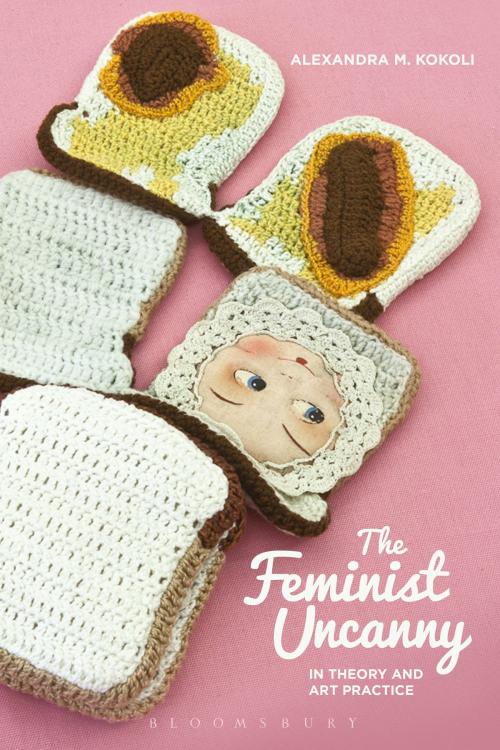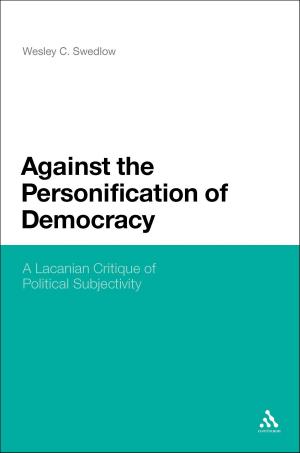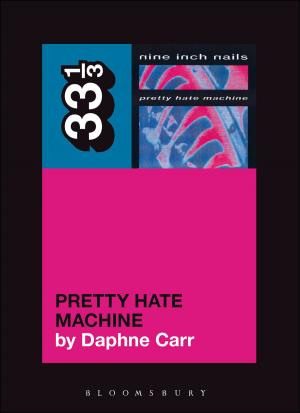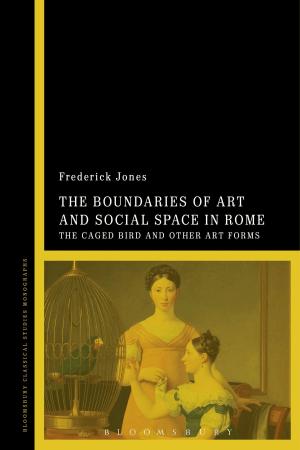The Feminist Uncanny in Theory and Art Practice
Nonfiction, Religion & Spirituality, Philosophy, Aesthetics, Social & Cultural Studies, Social Science, Gender Studies, Feminism & Feminist Theory| Author: | Alexandra M. Kokoli | ISBN: | 9781472514028 |
| Publisher: | Bloomsbury Publishing | Publication: | August 11, 2016 |
| Imprint: | Bloomsbury Academic | Language: | English |
| Author: | Alexandra M. Kokoli |
| ISBN: | 9781472514028 |
| Publisher: | Bloomsbury Publishing |
| Publication: | August 11, 2016 |
| Imprint: | Bloomsbury Academic |
| Language: | English |
The Feminist Uncanny in Theory and Art Practice investigates the widely debated, deeply flawed yet influential concept of the uncanny through the lens of feminist theory and contemporary art practice. Not merely a subversive strategy but a cipher of the fraught but fertile dialogue between feminism and psychoanalysis, the uncanny makes an ideal vehicle for an arrangement marked by ambivalence and acts as a constant reminder that feminism and psychoanalysis are never quite at home with one another.
The Feminist Uncanny begins by charting the uncanniness of femininity in foundational psychoanalytic texts by Ernst Jentsch, Sigmund Freud, Jacques Lacan and Mladen Dolar, and contextually introduces a range of feminist responses and appropriations by Hélène Cixous, Julia Kristeva and Sarah Kofman, among others. The book also offers thematically organised interpretations of famous artworks and practices informed by feminism, including Judy Chicago's Dinner Party, Faith Ringgold's story quilts and Susan Hiller's 'paraconceptualism', as well as less well-known practice, such as the Women's Postal Art Even (Feministo) and the photomontages of Maud Sulter. Dead (lexicalised) metaphors, unhomely domesticity, identity and (dis)identification, and the tension between family stories and art's histories are examined in and from the perspective of different artistic and critical practices, illustrating different aspects of the feminist uncanny.
Through a 'partisan' yet comprehensive critical review of the fascinating concept of the uncanny, The Feminist Uncanny in Theory and Art Practice proposes a new concept, the feminist uncanny, which it upholds as one of the most enduring legacies of the Women's Liberation Movement in contemporary art theory and practice.
The Feminist Uncanny in Theory and Art Practice investigates the widely debated, deeply flawed yet influential concept of the uncanny through the lens of feminist theory and contemporary art practice. Not merely a subversive strategy but a cipher of the fraught but fertile dialogue between feminism and psychoanalysis, the uncanny makes an ideal vehicle for an arrangement marked by ambivalence and acts as a constant reminder that feminism and psychoanalysis are never quite at home with one another.
The Feminist Uncanny begins by charting the uncanniness of femininity in foundational psychoanalytic texts by Ernst Jentsch, Sigmund Freud, Jacques Lacan and Mladen Dolar, and contextually introduces a range of feminist responses and appropriations by Hélène Cixous, Julia Kristeva and Sarah Kofman, among others. The book also offers thematically organised interpretations of famous artworks and practices informed by feminism, including Judy Chicago's Dinner Party, Faith Ringgold's story quilts and Susan Hiller's 'paraconceptualism', as well as less well-known practice, such as the Women's Postal Art Even (Feministo) and the photomontages of Maud Sulter. Dead (lexicalised) metaphors, unhomely domesticity, identity and (dis)identification, and the tension between family stories and art's histories are examined in and from the perspective of different artistic and critical practices, illustrating different aspects of the feminist uncanny.
Through a 'partisan' yet comprehensive critical review of the fascinating concept of the uncanny, The Feminist Uncanny in Theory and Art Practice proposes a new concept, the feminist uncanny, which it upholds as one of the most enduring legacies of the Women's Liberation Movement in contemporary art theory and practice.















